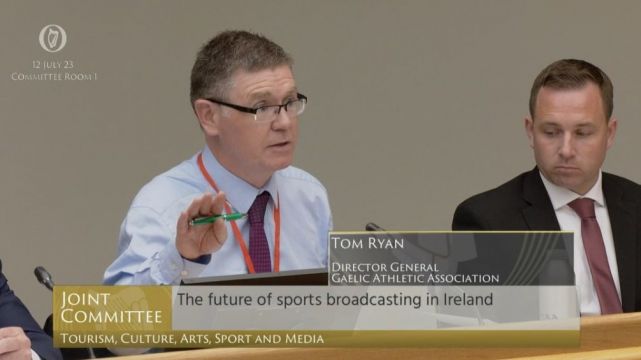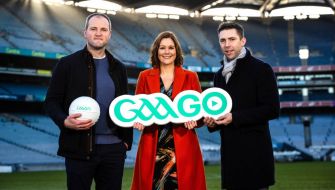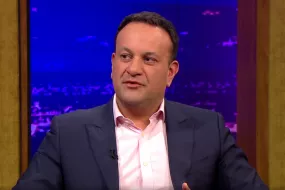The GAA told the Oireachtas Media Committee that the decision of which matches are broadcast on television is not based on revenue, while accepting difficulties people have in using the GAAGO streaming service.
It follows a backlash over fixtures, particular key games like the Limerick v Clare Munster Senior Hurling meeting, being shown exclusively on the pay-per-view service, rather than on free-to-air channels.
GAAGO is a joint venture between the GAA and RTÉ.
GAA director general Tom Ryan said that although it was “great” that people want to see matches, “the expectation that every single game should be on television is just not realistic”.
“It’s not in our interest, and not in our plans,” he said.
He said that during the Covid-19 pandemic, people could not attend games but the demand to watch them grew, so they “tore up the broadcasting model”.
Attempts were made to broadcast every game, but there was a “capacity limitation on the part of broadcasters”, and so it was done through GAAGO, and “morphed” an overseas and an international provider to the domestic market.
“We learned too, that there was a market for it, and we also saw the flexibility that it afforded,” he said.
He stated the total income for GAAGO in a year is approximately €4 million, adding that he believes the domestic viewership is greater.
“We have a responsibility to try and earn a decent and a reasonable income, in whatever means, whether it be through the turnstiles or through broadcasting those games.”
Frustration
Fine Gael TD and former Mayo footballer Alan Dillon said there was “huge frustration” among the public that prominent GAA games were being put behind a paywall.
“By and large, if the game is on a Saturday, that’s more than likely GAAGO, if it’s on a Sunday it’s at RTÉ’s discretion,” Mr Ryan said.
“It’s not fair and has been characterised in the past a little bit, ‘RTÉ team pick which games’ or ‘GAA pick’… We don’t pick it based on revenue. The contracts are signed at the start of the year. So we’ll earn the same revenue, irrespective of what game is shown or whether the game is shown at all.”
Federation of Irish Sport chief executive Mary O’Connor said that although the broadcast of women’s sport has greatly increased, TG4’s coverage of Ladies Gaelic Football was “an outlier”.
She said TG4 had “dedicated two decades of superior and innovative coverage that has played a huge part in the popularity of the sport”, as well as increased participation in such sports.
“This then should be seen as an example of how the broadcasting of women in sport via television/online and streaming can transform perception, participation, and generation of commercial opportunities for sport organisations.”
Irish Rugby Football Union (IRFU) chief executive Kevin Posts and chief commercial officer Padraig Power said that 20-25 per cent of its income is broadcasting rights, and that the importance of it “can’t be understated”.
He said that they are examining how the younger generation is watching sport “on multi screens across a myriad of different platforms” and that the organisation would have to be “agile and adapt” in future years.







